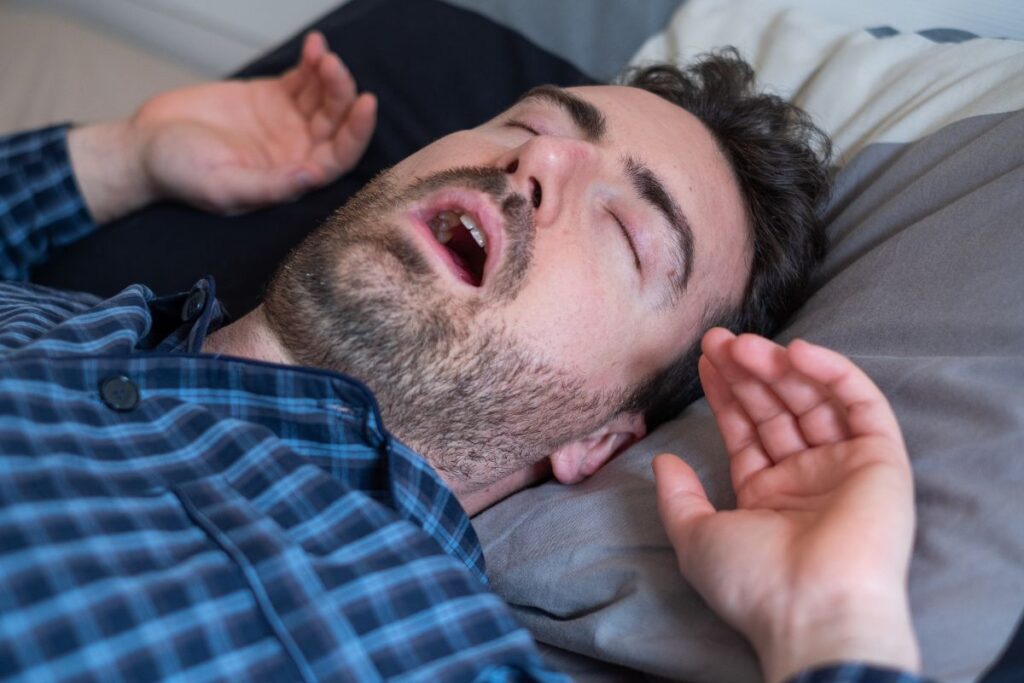What is Obstructive Sleep Apnea (OSA)?

Are you one of the many people in Aberdeen, New Jersey that have been diagnosed with Obstructive Sleep Apnea (OSA)?
Sleep Apnea is a medical condition that affects many Americans and can impact your overall health if left untreated. There are several treatments available for OSA, including using a dental appliance provided by your dentist to help replace the need for a c-pap machine. This blog post will provide information on OSA, how it affects your body, and what options may be available to treat it effectively. We understand how difficult it can be to manage this condition which is why we want to provide helpful answers about this disorder.
What is Obstructive Sleep Apnea (OSA)?
Obstructive Sleep Apnea (OSA) is a potentially serious sleep disorder that occurs when breathing is repeatedly interrupted during sleep. It is caused by a narrow airway that results in partial or complete blockage of airflow throughout the night, or when the muscles that hold open the throat’s airway relax and collapse reducing airflow to a minimum. OSA can lead to lack of proper rest, daytime drowsiness, irritability, and memory difficulties as well as possibly increased risks for high blood pressure, heart attack, stroke, and diabetes.
Fortunately, OSA can be treated through various measures including lifestyle modifications such as weight loss and abstinence from alcohol, specific mouthpieces designed to fit in the mouth and keep open the airway space, or continuous positive airway pressure treatment. Dental appliances may also help replace a c-pap machine when used effectively by trained professionals in order to improve the quality of sleep and reduce snoring which can prevent further health complications. Dr. Gomez is highly skilled and experienced with dental appliances to treat sleep apnea.
How Can OSA Be Treated By A Dentist?
Obstructive Sleep Apnea (OSA) is a common but potentially serious sleep disorder that is characterized by disruptions in normal breathing during sleep. OSA occurs when the throat muscles relax too much, blocking airflow during inhalation and leading to shallow or pause breathing. It can be diagnosed by completing a comprehensive medical history, physical exam, and sometimes a sleep study. When OSA is treated with a dental appliance from a dentist it works by moving the lower jaw slightly forward to help keep the air passage open and reduce or stop pauses in breathing throughout the night. Patients with mild to moderate OSA often utilize dental appliance therapy as an alternative to other treatments such as CPAP machines. Dental Appliance Therapy can help Improve symptoms and lead to better overall health.
Advantages of Dental Appliances for Treating OSA
Treating Obstructive Sleep Apnea (OSA) sufferers with dental appliances has various advantages. The easiest and most convenient benefit of this treatment option is its portability. Unlike a c-pap machine which requires a power source, a dental appliance can be used hands-free for up to two nights without the need for cords or plugs. Additionally, it is also less intrusive than using a c-pap due to it relying on the user’s mouth muscle tension rather than a bulky mask. Moreover, creating custom dental appliances can mold them precisely to the user’s teeth for maximum comfort and effectiveness. This ensures that not only does the patient receive a more comfortable treatment option but also allows them to experience fewer side effects from use. Contact us to schedule a consultation to see if this treatment is a fi for you.
How to Use a Dental Appliance to Treat Sleep Apnea
Thankfully, dentists are now able to create custom-fitted dental appliances that help replace the use of a C-PAP machine in some cases. This device will fit snugly into a patient’s mouth during sleep and hold the lower jaw slightly forward to ensure unobstructed airways. With one of these dental appliances, patients can sleep soundly without worrying about C-PAP machines and their many components like air pumps, face masks, and tubes. Dental appliances can provide just as effective of an alternative for treating OSA as C-PAPs and are more affordable and convenient for some patients.
Tips for Living With OSA and Taking Care of Yourself
Living with Obstructive Sleep Apnea can be challenging. To keep up with the condition, it is important to maintain a healthy lifestyle with things such as regular exercise and eating a balanced diet. Getting adequate sleep every night, avoiding alcohol and cigarettes, and using breathing and relaxation techniques on a daily basis can also help manage OSA. Patients who suffer from this disorder may find help by using dental appliances instead of a c-pap machine, which takes the pressure off their airways for more restful sleep. Finding the right balance between good habits and medical treatments is essential in maintaining control over your OSA.
In conclusion, Obstructive Sleep Apnea (OSA) is a disorder that causes people to experience sleep interruptions and wake up without feeling properly rested. It can be diagnosed and treated by a dentist using dental appliances, which have several advantages over other methods of treatment. Dental appliances can also be used to replace C-PAP machines by providing an effective, contoured fit and adjustable settings. With self-care such as developing healthy lifestyle habits like avoiding caffeine near bedtime, getting enough sleep each night, reducing stress levels, and following through on treatment recommendations by your doctor or dentist there are several options available to help patients manage their symptoms.
